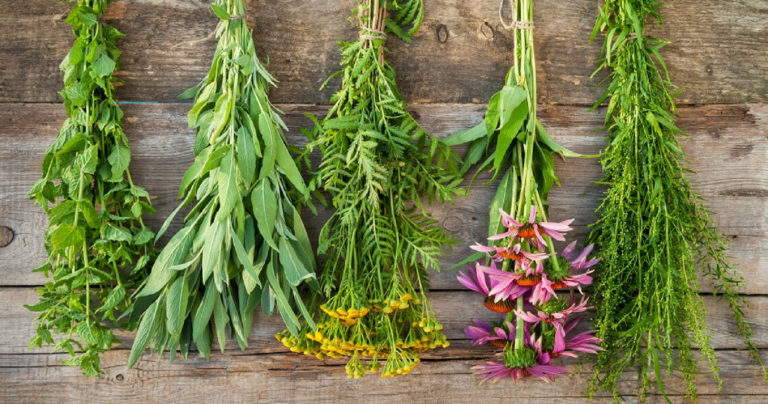
Plants have been used for healing since the beginning of time. Horses, like humans were treated with herbal medicines up until the 1930’s; in addition horses would often self medicate as herbs grew freely in the fields and hedgerows. With the advent of the industrial age however, came synthesized drugs and changes to agricultural practices which, over time, destroyed much of the natural flora.
Since then, we have almost come full circle and many owners now feel it appropriate that themselves and their horses can seek the best of both worlds – having vets, doctors, medicinal herbalists and complimentary practitioners collaborating to get the best outcome for the individual.
Clearly if either horse or rider is sick then seek the services of your doctor or vet and a fully qualified medicinal herbalist to ensure a positive outcome. There are many well intentioned amateurs out there offering advice but everyone should remember that whilst herbs are ‘natural’ they can be detrimental to horse or human health.
Aloe barbadensis
Aloe barbadensis is a herb which should be grown near every house and stable. It’s dead easy to grow, not too fussy about soil types but like many herbs it doesn’t like frost or wet feet. Very hardy once established. Aloe does well in pots – it enjoys being crowded with the suckers or ‘pups’ it throws off once it’s matured (2-3 years) It is one of the most powerful anti-inflammatories and pain inhibitors in the plant world. Use topically on any swellings , whether the skin is broken or not, you or your horse will feel its soothing effects within 5-10 minutes of application. If you can’t bandage the area then hold the aloe gel over the area for a least 10 minutes, 2-3 times daily. Use it for mouth ulcers or tears in the mouth, apply asap to any burns. An aloe bandage brings great relief to tired legs after heavy work or long hours of travelling. The fresh plant is always best as the therapeutic properties dissipate as soon as the leaf is cut. A whole leaf or gel from same will keep well in the fridge for up to 4 days. You’ll be amazed at your speedy results!
Ginger (Fresh root only)
You hear a cough or see a snotty nose in the paddock, stable or house think freshly chopped ginger root tea! Fresh ginger root has been proven scientifically to be beneficial against the common cold. If you have a paddock or stable full of horses then give it to them all for a week or two, dependent on severity of symptoms. Remember the quicker you start to treat the symptoms the faster the positive response will be seen. Using the fresh root, finely chop 2-3cm add 1.5 – 2 cups of boiling water – let cool and pour over feed for the horse, drink for the human. 1-2 times daily. Reduce dose on improvement of symptoms.
Ginger tea is also good for an upset or underactive gut, bloat and travel sickness. Interestingly it will also help to bring an aggressive person or horse back into balance as it will the ‘doormat, please walk all over me’ type. So the next time the sparks are flying at work or home make a pot of ginger tea and give everyone a cup. It will take 15 to 20 minutes to have an effect.
Thyme
For sore throats, coughs or bronchitis combine Ginger with Thyme. Use fresh or dried thyme, it’s a brilliant upper respiratory anti bacterial, anti microbial, antifungal herb. Works well for both horse and human.
Echinacea
The immune enhancer and modulator. Some have said to me that Echinacea hasn’t worked for them. The source, specie and therapeutic quality are extremely important if you have a sick horse or person carrying any sort of infection. Seek the services of a qualified medical herbalist to access the ‘practitioner only’ highest therapeutic standardized liquid available. One drop of this liquid will give your mouth a definite buzz! This is the taste test which lets you know if you have a top end Echinacea or not. It will be either Echinacea angustifolia root or a combination of E. angustifolia and E. purpurea root. For prophylactic use then source your dry herb from a reputable dealer.
We have entered the age where many antibiotics have been rendered ineffectual due over use. Allopathic drugs like ‘bute’ are routinely over used for maintaining both competition and recreational horses, often causing gut ulceration, blown tendons or bleeding. Allopathic drugs are invaluable when used appropriately, but everyone needs to know the dangers of overusing any drugs (or herbs) and learn what alternatives are available as a follow up after a few days once the drug has had the desired effect. This message is incredibly important for the long term health of horses and mankind.
~
One of Australia’s first female jockeys, Angela Davison retrained as a Classical Medical Herbalist when she hung up her racing boots. She ran a human and animal practice before specializing in horses. She has formulated many hand-blended propriety herbal formulas to address many human and horse complaints, she put her unique hair assessment system into practice in 1998 and is the author of ‘Flower Remedies for Horses, Pets and People’. Find out more at www.thehorseherbalist.com.






